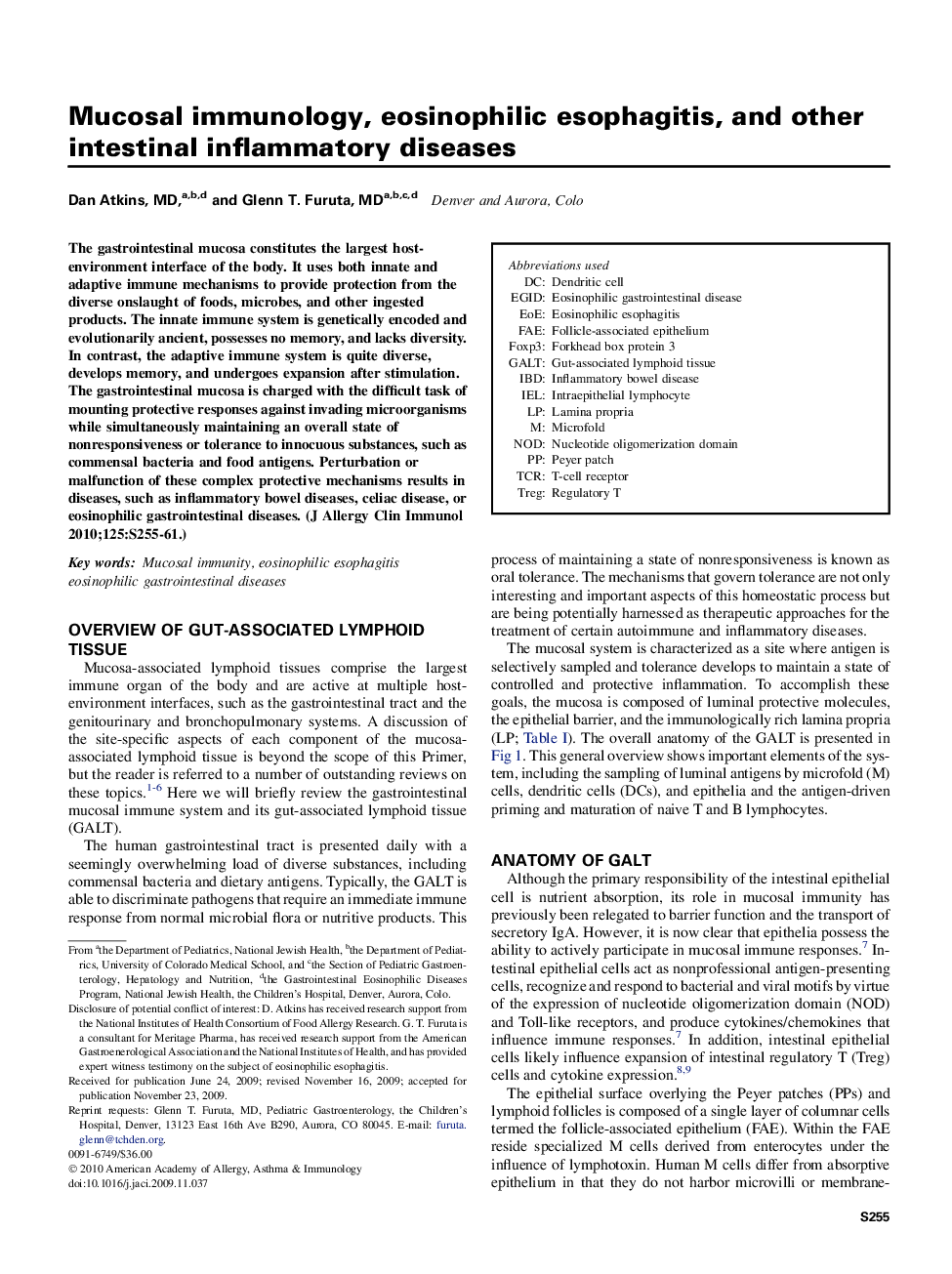| Article ID | Journal | Published Year | Pages | File Type |
|---|---|---|---|---|
| 3199762 | Journal of Allergy and Clinical Immunology | 2010 | 7 Pages |
The gastrointestinal mucosa constitutes the largest host-environment interface of the body. It uses both innate and adaptive immune mechanisms to provide protection from the diverse onslaught of foods, microbes, and other ingested products. The innate immune system is genetically encoded and evolutionarily ancient, possesses no memory, and lacks diversity. In contrast, the adaptive immune system is quite diverse, develops memory, and undergoes expansion after stimulation. The gastrointestinal mucosa is charged with the difficult task of mounting protective responses against invading microorganisms while simultaneously maintaining an overall state of nonresponsiveness or tolerance to innocuous substances, such as commensal bacteria and food antigens. Perturbation or malfunction of these complex protective mechanisms results in diseases, such as inflammatory bowel diseases, celiac disease, or eosinophilic gastrointestinal diseases.
